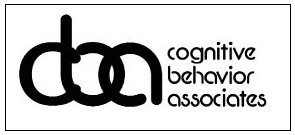A common occurrence in those experiencing psychological distress is the manifestation of various body-focused repetitive behaviors. These habits serve to lessen some element of distress or anxiety in a patient who is struggling with their mental well-being. Recognizing whether these behaviors are occurring can help a professional discern if a patient is experiencing certain psychological conditions that have manifested themselves via the expression of these body-focused repetitive behaviors. This knowledge can prove useful in an individual’s subsequent diagnosis and treatment.
If you want to become aware of various body-focused repetitive behaviors, this guide describes many of the most common varieties and treatments available for repetitive behaviors.
What are Body-Focused Repetitive Behaviors?
Body-focused repetitive behaviors are a type of behavior that is often classified under the umbrella of anxiety-induced obsessive-compulsive behaviors. They are, in many cases, the subconscious or uncontrollable manifestation of a person’s need to regulate intense emotions or correct perceived physical imperfections. Patients usually perform body-focused repetitive behaviors so often that they result in some level of physical damage.
These behaviors are highly compulsive, and individuals who engage in them usually would prefer not to do them at all. In fact, many patients who participate in these behaviors are distressed by their outcomes.
Types of Body-Focused Repetitive Behaviors
There are many different types of body-focused repetitive behaviors. The following are among the most commonly experienced types.
Onychophagia
Onychophagia refers to obsessive nail biting. Biting nails is an incredibly common habit that many individuals engage in. However, individuals with onychophagia bite their nails in a particular way that is highly ritualistic and may interfere with their day-to-day lives. Expressions of this condition include:
- Using teeth rather than clippers to cut one’s nails
- Biting nails in a specific way to achieve specific results
- Biting that results in damaged nails and skin
- Obsessive inspection of the results of nail-biting
Excoriation
Excoriation is a term that refers to an obsessive skin-picking habit that can manifest in very severe irritation of the skin. Common indications of this condition are:
- Recurrent skin picking that results in marks or lesions
- A desire to cease engaging in this type of skin-picking
- Significant mental anxiety produced via the habit of skin-picking
Some evidence suggests that this type of behavior may occur more commonly in women than in men. However, anyone has the potential to develop this type of behavior over time.
Rhinoillexomania
This term refers to an obsessive nose-picking habit, a behavior most commonly perceived in children. This type of habit persists well into adulthood for those suffering from this condition, which may manifest itself in the following ways:
- Nosebleeds
- Abnormalities in the nasal tissue
- Scrapes and scabbing on the nose
- Sinus and nasal skin infections
Trichotillomania
Trichotillomania refers to a habit of recurrent and obsessive hair pulling, which in many cases results in large amounts of hair loss. When diagnosing this condition, the following symptoms are typically present:
- High amounts of distress or functional impairment associated with the habit of hair-pulling
- A strong desire to stop hair-pulling
- An inability to explain hair pulling or attribute it to known mental and physical conditions
- Ritualistic hair-pulling that is heavily connected with obsessive or anxious thoughts
- Hair pulling that is triggered by boredom, mental distress, or anxiety
Treating Body-Focused Repetitive Behaviors
Several different methods can be employed to curb these behaviors in those suffering from them. One of the most effective treatments is cognitive behavioral therapy, which can help an individual alter these habits through an understanding of the underlying mental unease that is leading to them.
Another common way to treat these issues is through dialectical behavioral therapy, which is a type of talk therapy that aims to improve the ability to manage emotions and curb unwanted or compulsive habits. In addition, some medications can be helpful in reducing the impact of these behaviors. Some of the common medications that are employed in this regard include:
- Clomipramine
- Fluoxetine
- N-Acetylcysteine
- General SSRI antidepressants, which can reduce anxiety
You can discuss with your therapist what is the right course of action regarding your body-focused repetitive behaviors. The two of you can then create a plan for moving forward.
The Best Cognitive Behavior Therapy in Beverly Hills
Cognitive Behavior Associates is widely regarded as a top resource for those seeking cognitive behavior therapy in Beverly Hills. If you are struggling with any of these common body-focused repetitive behaviors, do not hesitate to contact one of our esteemed specialists to discuss your situation.

